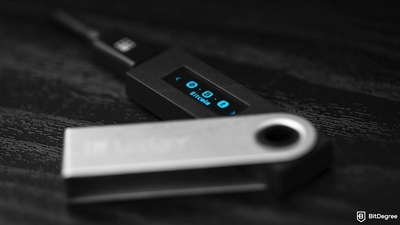Free Airdrop Season 7 is LIVE! Answer fun questions or do simple tasks to earn rewards from the $30K BitDegree prize pool. Participate Now ! 🔥
Vitalik Buterin’s Vision: Next-Gen Web3 Wallets Need Better Privacy and Security
Key Takeaways
- Vitalik Buterin urges Web3 wallet developers to integrate privacy tools directly into wallets for seamless, secure transactions;
- Multi-signature authorization in Web3 wallets can greatly enhance security by requiring multiple transaction approvals;
- Buterin emphasizes the need for better Layer-2 integration, ensuring smooth token transfers across networks like Arbitrum and Optimism.
In Vitalik Buterin's recent blog post, the Ethereum co-founder called on developers of Web3 wallets to enhance both security and privacy in their platforms.
Buterin outlined several key suggestions for developers, including the integration of privacy-focused tools directly into Web3 wallets rather than downgrading them to specialized privacy wallets.
Until now, users who wanted to make private transactions on Ethereum

Did you know?
Subscribe - We publish new crypto explainer videos every week!
What is Litecoin? LTC Easily Explained (ANIMATED)


"Private transfers need to be integrated directly into wallets", he stated, adding that wallets should be able to manage a "private balance"—funded from a privacy pool—enabling seamless, privacy-oriented transfers without the need for additional software.
Buterin also recommended adding multi-signature authorization capabilities to all Web3 wallets. This would require multiple signers to authorize transactions, boosting security across the Web3 ecosystem.
Furthermore, he also addressed the need for better integration between Ethereum's Layer-2 (L2) scaling solutions, such as Arbitrum
With over $50 billion locked in Layer-2 networks, according to L2Beat data, facilitating seamless token transfers across these networks has become a priority.
Buterin’s call for improved privacy and security is just one step toward a more decentralized and user-friendly Ethereum ecosystem. One such example is Buildernet, a new initiative tackling the issue of censorship head-on. How is Buildernet leading the charge? Read the full story.























